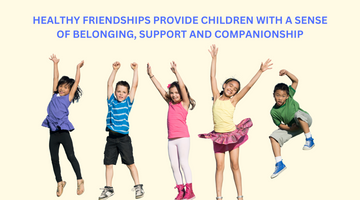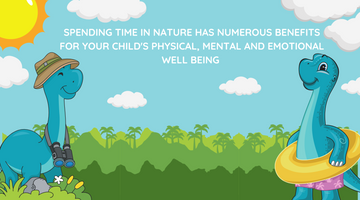Friendships and relationships play a crucial role in shaping a child's overall well-being and happiness. As kids grow and navigate through school and social environments, developing healthy connections becomes essential.
1. Understanding the Importance of Healthy Friendships :
Healthy friendships provide children with a sense of belonging, support, and companionship. They contribute to emotional development, self-esteem, and overall happiness. Kids who have strong friendships tend to have better social skills, improved communication, and higher levels of empathy. Furthermore, positive relationships can help children cope with challenges, reduce stress, and enhance their overall well-being.
2. Encouraging Positive Communication :
Communication is a vital aspect of any relationship. Teach children the importance of effective communication by encouraging active listening, empathy, and respect for others' opinions. Encourage them to express their thoughts and emotions openly and honestly while also promoting understanding and compromise.
3. Nurturing Empathy and Kindness :
Empathy is the ability to understand and share the feelings of others. It is a crucial skill for building healthy relationships. Encourage children to practise empathy by considering how others might feel in different situations. Teach them to be kind, compassionate, and supportive towards their friends and classmates. By fostering empathy and kindness, children can create a positive and inclusive social environment.
Checkout our blog - Mindfulness and Self-Care for Kids
4. Resolving Conflicts Peacefully :
Conflicts are a normal part of any relationship. Teach children healthy conflict resolution skills to help them navigate disagreements with their friends. Encourage them to express their feelings calmly, listen to the other person's perspective, and find mutually agreeable solutions. By learning to resolve conflicts peacefully, children can maintain and strengthen their friendships.
5. Encouraging Inclusion and Acceptance :
Teach children the importance of including others and embracing diversity. Encourage them to be open-minded, accepting, and respectful towards others, regardless of their differences. Help them understand that everyone deserves kindness and friendship, regardless of their race, religion, abilities, or interests. By fostering inclusivity, children can create a supportive and welcoming environment for all.
6. Building Trust and Loyalty :
Trust and loyalty are the foundation of strong friendships. Teach children the value of trust by emphasising the importance of honesty, keeping promises, and respecting boundaries. Encourage them to be reliable and supportive friends, who can be trusted with secrets and personal information. By building trust and loyalty, children can create long-lasting and meaningful relationships.
Building healthy friendships and relationships is vital for a child's mental and emotional well-being. By understanding the importance of positive communication, empathy, conflict resolution, inclusion, and trust, children can develop the skills needed to create meaningful connections. Encourage children to cultivate and nurture healthy friendships, as they contribute to their overall happiness, self-esteem, and social development. As parents, teachers, and mentors, we play a crucial role in guiding children towards building healthy relationships, fostering a positive social environment, and promoting their overall well-being.






